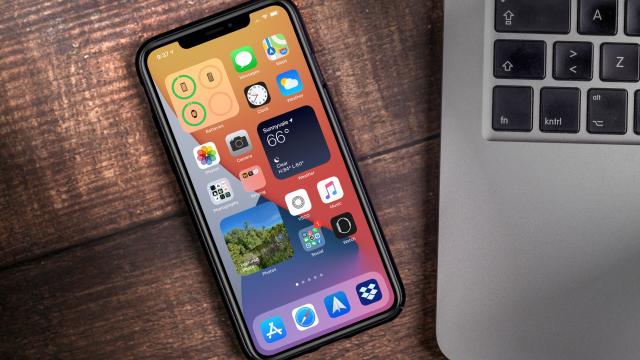New proposed antitrust legislation in the U.S. could prevent Apple from selling iPhones with its own apps pre-installed on the devices.
Earlier this month new bipartisan antitrust legislation was announced in the U.S. that could have a huge impact on major tech companies like Google, Amazon and Apple.
It came off the back of a 16-month antitrust investigation into the practices of large companies.
And it seems that one of these changes could stop Apple from selling iPhones in the U.S. with its own apps pre-installed. Instead, it would have to offer users other options to download.
Anyone familiar with Apple will know that one of its greatest strengths is its ecosystem. In addition to its hardware, it has a suite of software solutions (Messages, Safari, Music, FaceTime, Notes and Calendar, just to name a few) all developed by the company.
On the one hand, this means that users can have all the conveniences afforded by their apps and hardware talking to each other seamlessly. This includes fast and easy set up of new devices.
On the other, it means that competitors can have a tough time breaking through — especially when Apple increasingly has its fingers in nearly every pie.
“It would be equally easy to download the other five apps as the Apple one so they’re not using their market dominance to favor their own products and services,” David Cicilline, a Congressman for Rhode Island, said in a statement.
There are five bills in total that are aimed at companies with market caps of $US600 billion and a minimum of $50 million active users in the U.S.
If passed, the likes of Apple, Google, Amazon and Facebook will face huge competition law changes that could significantly impact their market domination.
It’s not the only antitrust investigation into Apple
This is certainly not the first time that Apple has faced anti-trust investigations in recent years.
In Mid-2020 the European Union opened an antitrust investigation into Apple’s App store policies, as well as Apple Pay. This came off the back of a complaint from Spotify in 2019.
Spotify claimed that Apple was “abus[ing] its dominant position” in the music streaming space. It said that Apple imposes obstacles that favours its own services over competitors.
It called out the fact that developers only have the App Store as an option to reach iOS users. As Apple owns and operates the App store, it can prioritise its own products. Apple also takes a 30 per cent commission for all in-app purchases. As such, Spotify had to raise its subscriptions prices.
Furthermore, Apple has “anti-steering provisions” built into its contracts with app developers that prevents them for advertising alternative payment avenues that might actually be cheaper.
If this sounds familiar, it may be because the 30 per cent cut is what Epic Games took issue with back in 2020. In response, the company enabled iOS Fornite players to purchase in-game currency directly in the games app.
This meant skipping the regular in-app payment method and resulted in the game being booted from the App Store. Epic and Apple are currently battling this out in court in both the U.S. and Australia.
The EU actually ruled in favour of Spotify just a few months back. However, Apple will be given the opportunity to rebut the charges before a final ruling is made.
“By setting strict rules on the App Store that disadvantage competing music streaming services, Apple deprives users of cheaper music streaming choices and distorts competition,” the European Commission said in a tweet.
There’s also an antitrust investigation into the App Store underway in the UK.
